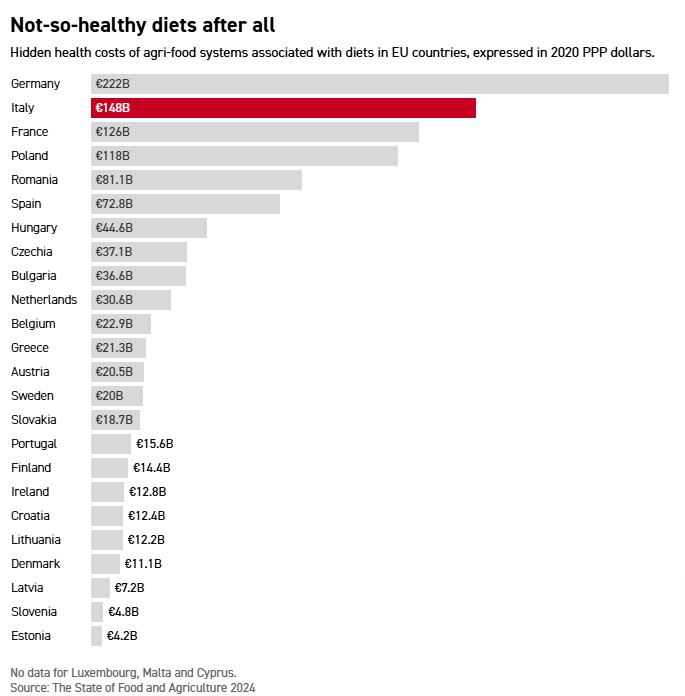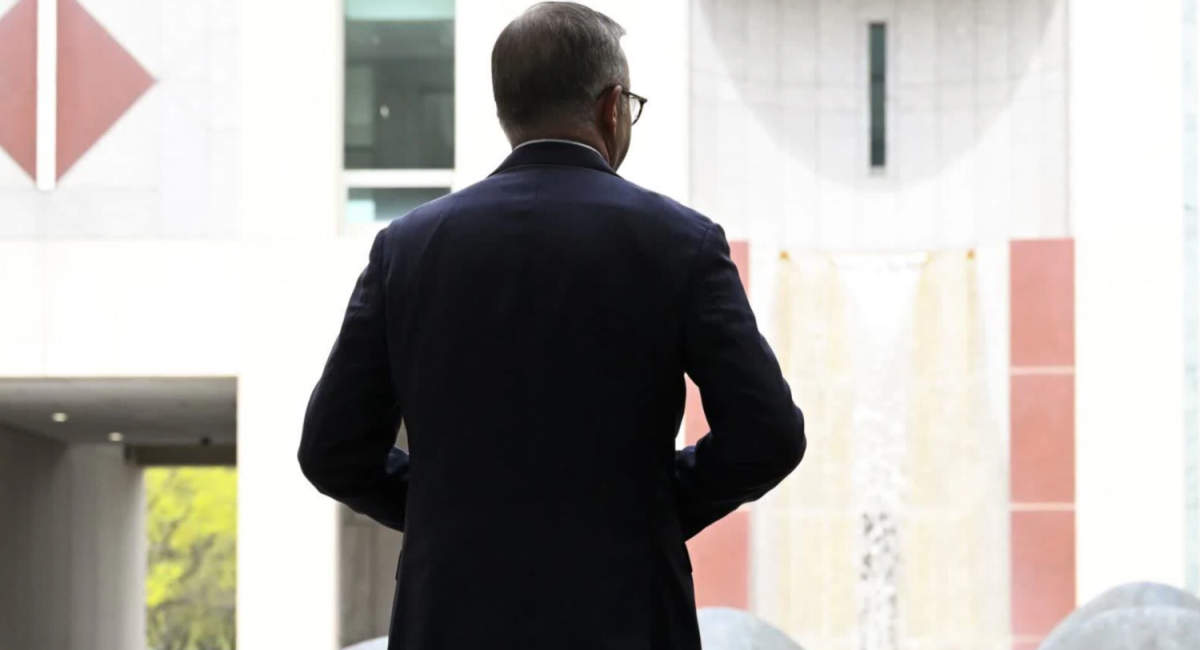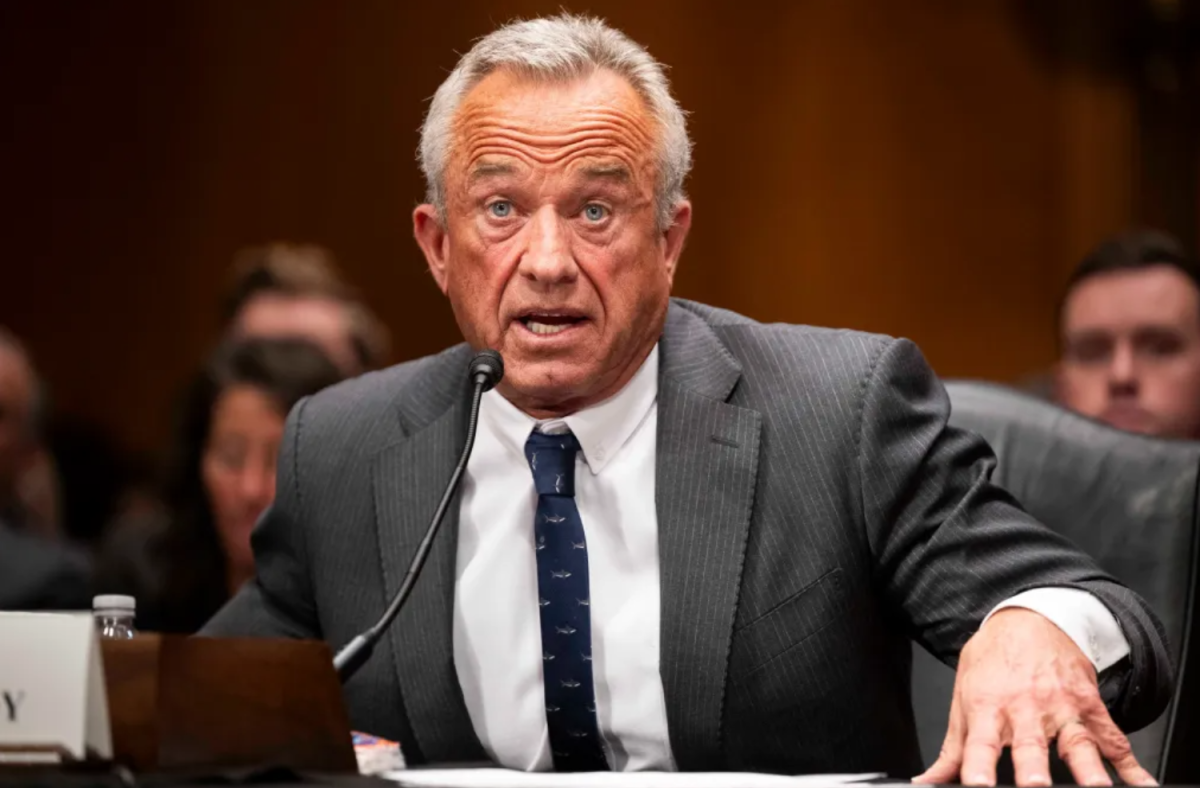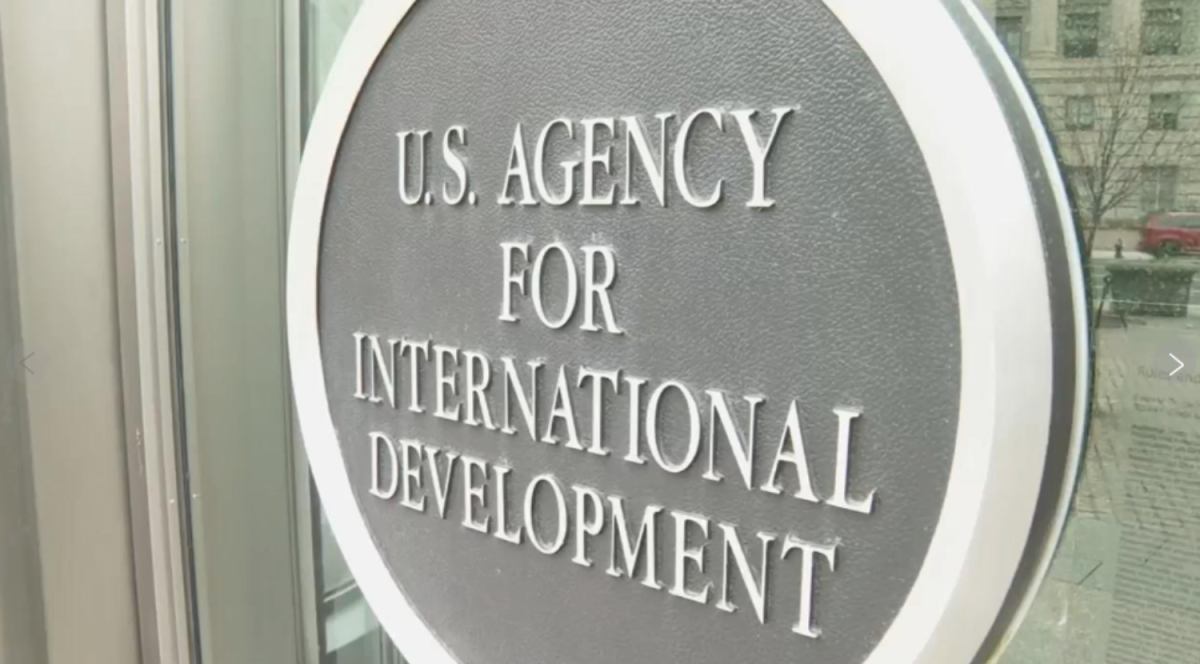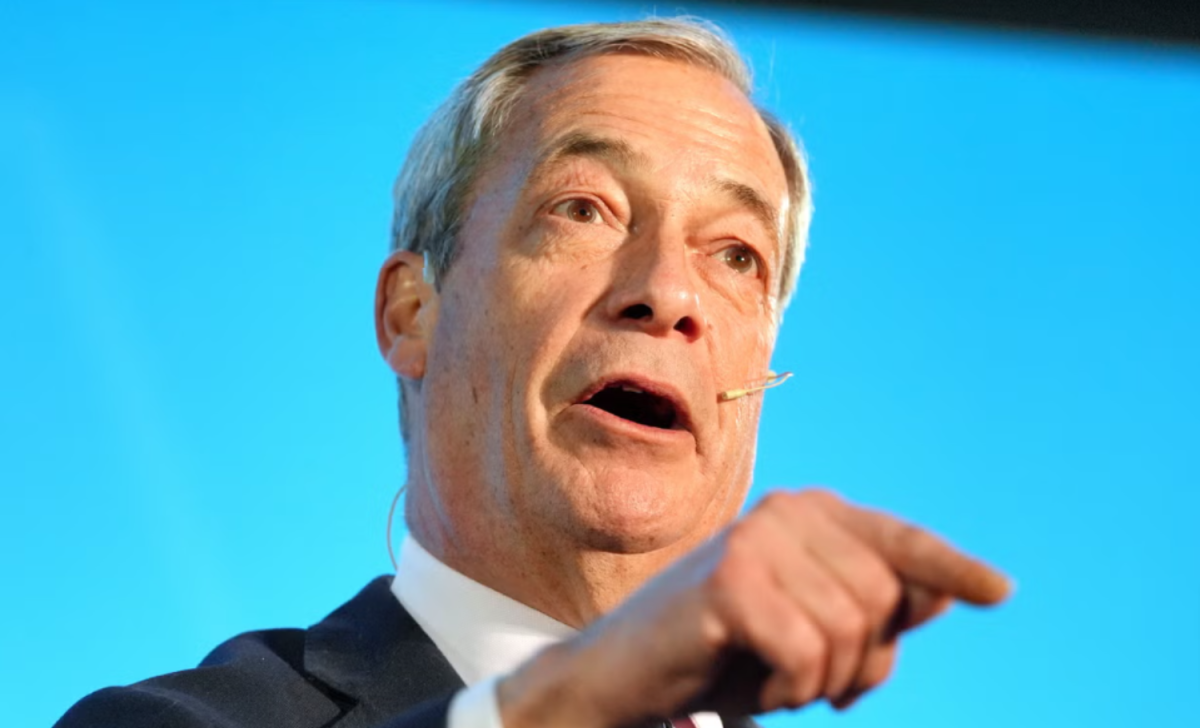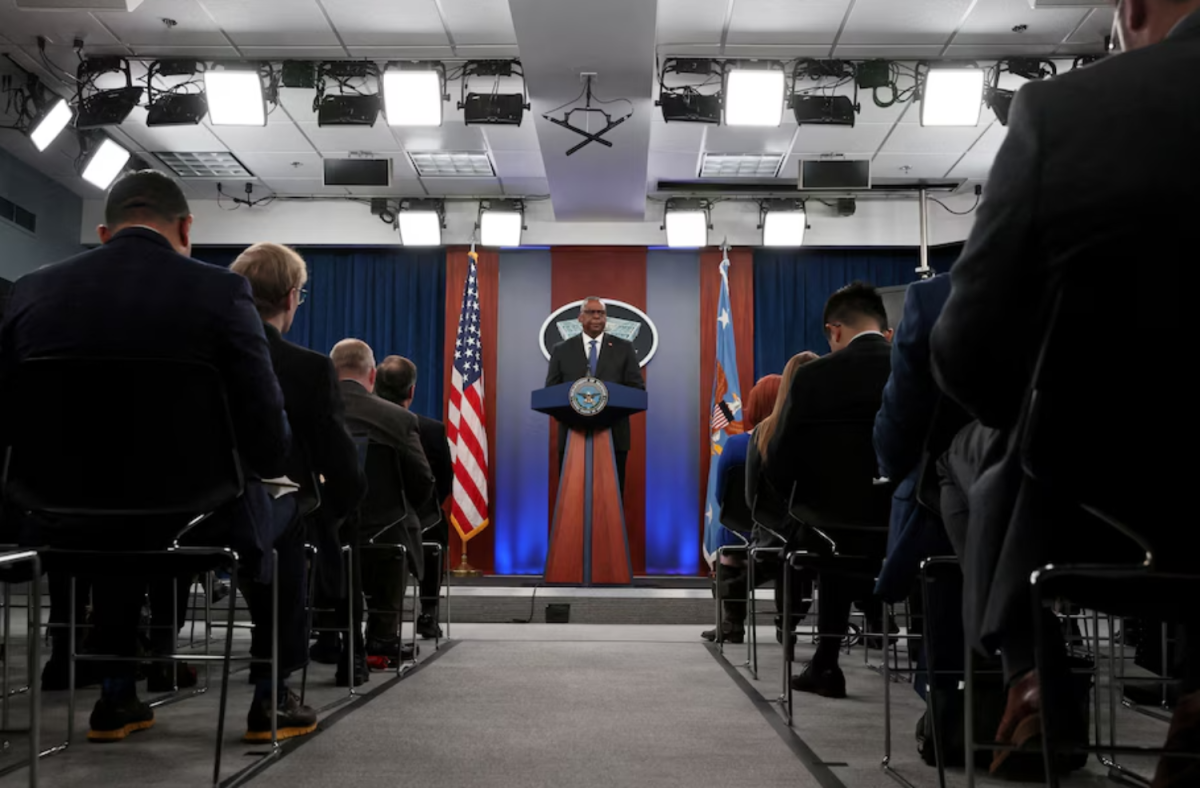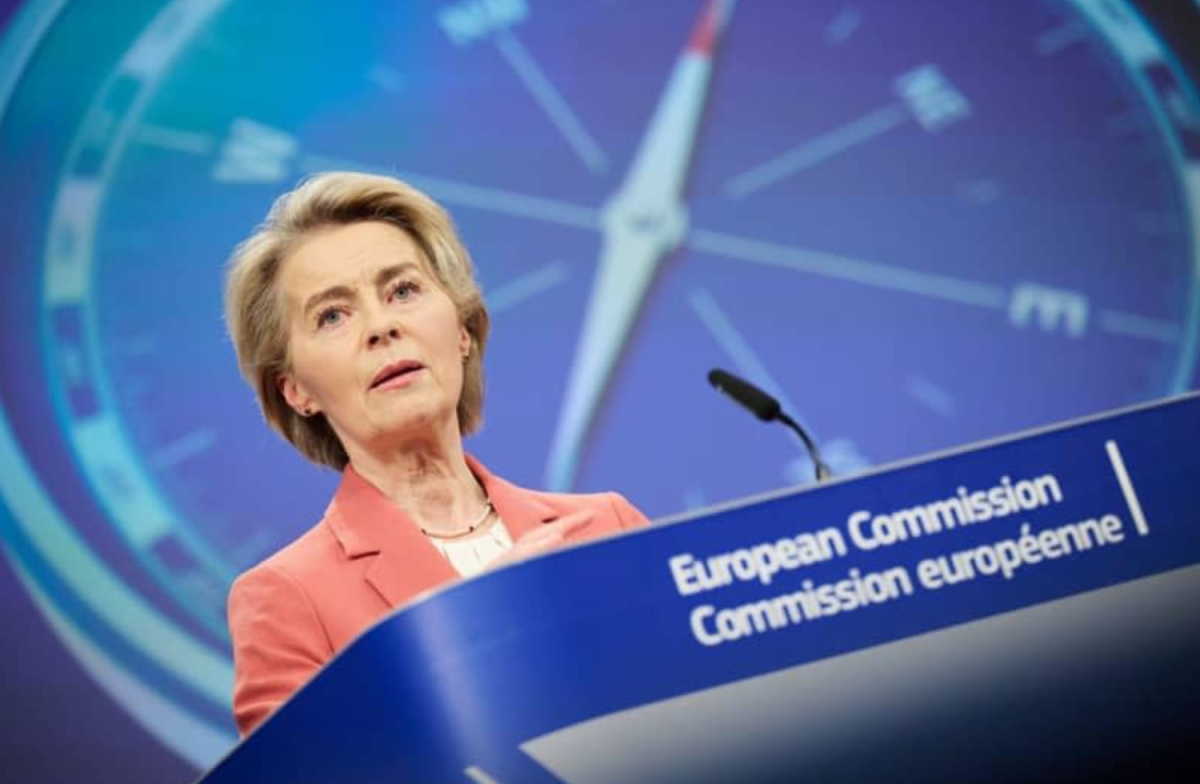-
Posts
10,013 -
Joined
-
Last visited
Content Type
Events
Forums
Downloads
Quizzes
Gallery
Blogs
Everything posted by Social Media
-
United Nations planetary defense organizations are closely observing an asteroid named 2024 YR4, which has a very small chance of impacting Earth in the future. While the European Space Agency (ESA) states that the asteroid has an almost 99% probability of safely passing Earth on December 22, 2032, experts acknowledge that a potential collision "cannot yet be entirely ruled out." Currently, the likelihood of 2024 YR4 impacting Earth on that date is estimated at 1.3%. Despite this, Dr. Robert Massey of the Royal Astronomical Society remains calm, stating, "I’m not panicking or losing sleep over it." He reassured the public, saying, "There is no need for alarm. The thing about this kind of event is that historically they tend to go away when the calculations are refined." However, he also emphasized the importance of vigilance, adding, "We need to be aware, alert, and we need to give astronomers the resources they need to track these kinds of threats so that we can take action as soon as possible." The asteroid was first detected on December 27, 2024, and initial calculations suggest it measures between 40 and 90 meters in diameter. If it were to collide with Earth, its impact could be equivalent to that of a nuclear explosion, causing significant damage, particularly if it were to hit a populated area. However, experts believe it is far more likely that YR4 would land in the ocean or in a remote location. At this stage, the asteroid is too distant, and too many uncertainties remain, to predict an exact impact location if a collision were to occur. Since January, astronomers have been using telescopes to refine estimates of YR4’s size and trajectory. The asteroid is currently classified as a Level 3 threat on the Torino Impact Hazard Scale, meaning it warrants attention from both scientists and the public. The scale ranges from 0 to 10, with a collision only considered certain at levels 8, 9, or 10. Historically, when an asteroid is initially calculated to have a small probability of impact, further observations usually lead to that probability dropping to zero. A similar situation occurred in 2004 when an asteroid named Apophis was initially thought to have a 2.7% chance of colliding with Earth in 2029, only for later calculations to rule out any risk. When an object larger than 50 meters in diameter has a greater than 1% chance of impact, a series of precautionary steps are triggered. These measures ensure the threat is closely monitored and that, if necessary, actions can be taken to mitigate the risk. The first step involves activating two UN-endorsed asteroid response groups: the International Asteroid Warning Network (IAWN), led by NASA, and the Space Mission Planning Advisory Group (SMPAG), chaired by the ESA. This week, SMPAG is conducting a series of meetings to assess its next steps. The organization has concluded that it is too early for immediate action but has pledged to "monitor the evolution of impact threat and possible knowledge about the size closely." Another meeting is expected to take place between late April and early May, though it could be scheduled earlier if the situation demands urgent attention. Should YR4’s impact probability remain above 1%, SMPAG will provide recommendations to the UN and may begin evaluating possible mitigation strategies. In the unlikely event that YR4 were confirmed to be on a collision course with Earth, one potential solution would be to deflect it using a robotic spacecraft—a method successfully tested in 2022 with NASA's Double Asteroid Redirection Test (DART) mission. "NASA’s DART mission showed that we have the means to divert an asteroid, but only if we spot it early enough," Dr. Massey explained. At present, YR4 is moving away from Earth in nearly a straight line, making precise orbit calculations difficult until it returns on a closer path. Over the next several months, the asteroid will become increasingly faint, making continued monitoring challenging. According to ESA, "It is possible that asteroid 2024 YR4 will fade from view before we are able to entirely rule out any chance of impact in 2032. In this case, the asteroid will likely remain on ESA’s risk list until it becomes observable again in 2028." Although the risk remains minimal, planetary defense organizations will continue tracking YR4, refining calculations, and preparing for any potential threats. For now, astronomers remain watchful but unconcerned, emphasizing that ongoing research and monitoring are the best tools to ensure Earth's safety from asteroid impacts. Based on a report by BBC 2025-02-05
-
A Bulgarian criminal who played a key role in the UK’s largest benefits fraud is desperately pleading for deportation, but authorities refuse to send him home until they recover the stolen millions. Stoyan Stoyanov, 28, was sentenced to four years in prison in 2024 for his involvement in a staggering £50 million Universal Credit scam, which saw a Bulgarian gang exploit the UK welfare system using fake documents and stolen identities. Despite completing his sentence, Stoyanov remains in the UK on immigration bail while prosecutors continue their search for hidden assets linked to the fraud. At a recent confiscation hearing, a frustrated Stoyanov demanded to be deported, claiming that he has a right to rebuild his life. “Why should my wife and children — all of whom have health issues — continue to suffer?” he asked the judge through a translator. “Where is the fairness in that?” However, Mr Justice Aaronberg KC dismissed his appeal, reminding Stoyanov of the severity of his crimes and the consequences he must face. Stoyanov was among five gang members jailed for a combined 25 years at Wood Green Crown Court last May. The ringleader, 39-year-old Galina Nikolova — also Stoyanov’s long-term partner — remains in prison, serving an eight-year sentence. Another key figure, Gyunesh Ali, 34, was handed a seven-year term after flaunting his extravagant lifestyle, fully funded by fraudulent benefit claims. His lawyer recently petitioned for Ali to be allowed a games console and a laptop upon release, a request the judge approved. Authorities suspect that the fraud’s true scale far exceeds the £50 million already uncovered, with the Department for Work and Pensions (DWP) estimating that hundreds of millions may still be missing. So far, only £1 million has been recovered from the criminal network. The gang hijacked 6,000 identities to fabricate Universal Credit claims, even using the names of Bulgarian children to bolster their scheme. Operating out of three 'benefit factories' across London, they produced counterfeit tenancy agreements, forged payslips, and fake documents from landlords, employers, and GPs to deceive the DWP. The fraud went undetected for years due to what the judge called “woefully inadequate” fraud checks by UK authorities. The scheme unraveled only by chance when a Bulgarian police officer tipped off UK authorities after noticing criminals in his hometown suddenly living lavish lifestyles, flashing stolen taxpayer money. This led to the arrests of multiple gang members, but some, including Tsvetka Todorova, 53, have already walked free after serving only half their sentences. Todorova, who personally stole nearly £300,000, later boasted to Bulgarian media that her time in a British prison felt like a holiday. “It was like a vacation home,” she said, gloating about access to a gym and art classes. While many involved in the fraud have been caught, authorities remain determined to locate and recover the stolen funds before considering Stoyanov’s request for deportation. For now, he remains stuck in the UK, facing the consequences of his actions. Based on a report by Daily Mail 2025-02-05
-
Angela Rayner is moving forward with plans to establish a government advisory council on Islamophobia, aiming to create an official definition of anti-Muslim discrimination and advise ministers on tackling the issue. The 16-member council, set to be part of the Ministry of Housing, Communities and Local Government (MHCLG), has already sparked controversy, with critics warning that it could lead to restrictions on free speech and the introduction of a de facto blasphemy law. Dominic Grieve, the former Conservative attorney general and an outspoken opponent of Brexit, has been suggested as the potential chair of the council. Grieve has a history of involvement in efforts to combat Islamophobia, having chaired the Citizens’ UK Commission on Islam and contributed to a 2018 all-party parliamentary group report that attempted to define Islamophobia. That definition was later adopted by the Labour Party but faced criticism for being overly broad, with concerns that it could suppress legitimate criticism of Islam as a religion. Among those shortlisted for a position on the council is Qari Asim, a Leeds imam who was dismissed from his role as a government adviser in 2022 after supporting a ban on *The Lady of Heaven*, a film about the Prophet Mohammed’s daughter. The film's release was met with protests from some Muslim groups, leading to accusations that calls for its censorship were an attempt to enforce religious restrictions on free expression. The government has yet to confirm whether it will adopt the all-party group's 2018 definition of Islamophobia or seek an alternative, but critics are already calling for the plans to be abandoned. Shadow Justice Secretary Robert Jenrick has urged ministers to reject the proposal, arguing that it threatens fundamental freedoms. **"The Government should drop its plans for such a deeply flawed definition of Islamophobia. Of course, we should tackle anti-Muslim hate wherever it occurs, but this definition is a Trojan horse for a blasphemy law protecting Islam,"** Jenrick said. **"Why do Labour MPs think it is acceptable to mock Christianity but not Islam? Time and again this Labour Government displays an Orwellian disregard for freedom of speech."** The 2018 definition, developed over 18 months, describes Islamophobia as **"rooted in racism and a type of racism that targets expressions of Muslimness or perceived Muslimness."** In his foreword to the report, Grieve welcomed the findings, stating that it **"makes an important contribution to the debate as to how Islamophobia can best be addressed. It is well researched and can give all of us food both for thought and positive action."** Despite his past endorsement, Grieve has acknowledged the difficulty of defining Islamophobia in a way that balances protecting Muslim communities from discrimination while preserving freedom of expression. **"It was apparent at the time that defining Islamophobia is extremely difficult for perfectly valid reasons relating to freedom of expression,"** he told *The Telegraph*. However, he also recognized that **"perfectly law-abiding Muslims going about their business and well integrated into society are suffering discrimination and abuse."** Rayner’s plans also include the creation of a council on anti-Semitism, though some within the Jewish community have questioned whether another advisory body is necessary. The proposed Islamophobia council comes alongside Home Office efforts to expand the recording of non-crime hate incidents related to both Islamophobia and anti-Semitism. This move has raised further alarm among free speech advocates, with Policy Exchange researcher Paul Stott warning that the government appears to be leaning toward restrictive measures. **"The Government is giving off worrying vibes – that it is potentially amenable to restrictions on ‘blasphemy’ and that its mind is made up in favour of a definition of Islamophobia. If so, that is terrible news for freedom of speech,"** he said. A spokesperson for the MHCLG defended the initiative, stating: **"All forms of religious and racial hatred have absolutely no place in our society. The Government engages regularly with faith communities to help foster strong working relationships, and we are actively exploring a more integrated and cohesive approach to tackling racial and religious hatred, including Islamophobia and anti-Semitism. Further details of this work will be set out shortly."** As debate over the council intensifies, the government faces a difficult challenge in balancing the fight against discrimination with the preservation of free speech—a conflict that is unlikely to be resolved without controversy. Based on a report by The Times 2025-02-05
-
Swimmer Riley Gaines is featured in a powerful new advertisement highlighting female athletes who have faced criticism for opposing the inclusion of trans women in women’s sports. The campaign, produced by sportswear brand XX-XY Athletics, has gained the endorsement of Harry Potter author JK Rowling, who shared her support on social media, writing: “This is the first and likely the last time I’ll retweet an ad, but I love it.” The ad also features other female athletes who have spoken out on the issue, including Sia Liilii, co-captain of the Nevada volleyball team. She and her teammates made headlines last year after refusing to play against San Jose State due to the inclusion of transgender player Blaire Fleming on the opposing team. In the advert, Liilii is depicted checking her phone before practice, seeing a flood of online abuse, including accusations of being a “transphobe” and cruel messages telling her to “just die.” Another athlete included in the campaign is Jaycee Bassett, a senior on Costa Rica’s national taekwondo team. A decorated competitor, she holds a Junior Pan American Championship title and a silver medal from the Junior World Taekwondo Championship. Like the others, Bassett is shown training as critical media coverage plays in the background. The advert concludes with bold statements appearing on the screen, reading “Real Strength” and “Real Courage” before ending with the words “Real Girls Rock.” XX-XY Athletics has positioned itself as a brand that champions fairness in women’s sports, previously calling out major corporations like Nike for failing to stand up for female athletes. Jennifer Sey, a former US gymnastics champion and founder of XX-XY, explained the motivation behind the campaign, saying, “The athletes featured in the film prove that sports serve as a training ground for developing young people into outstanding, courageous individuals. We wanted to honour them with this film when no other brand has the guts to do it.” Launched in March last year, XX-XY Athletics sells sportswear promoting “fairness, safety and equal opportunity in women’s sports and spaces.” The brand name itself, referencing the male and female chromosomes, signals its stance in the debate. The company has been outspoken in its criticism of athletic brands that, in its view, have “sold out women for wokeness” by staying silent on the issue. In a statement on its website, XX-XY stressed the cultural impact brands can have, stating, “Brands can influence culture.” It further suggested that simply wearing XX-XY clothing could spark necessary conversations, asking, “Hey, what does that mean?” The company warned that allowing government legislation to mandate the inclusion of trans women in female sports would mean, in its words, that “we have lost the battle.” With high-profile figures like JK Rowling lending their support, the advert has ignited further discussion in the ongoing debate over fairness in women’s sports. Based on a report by Daily Telegraph 2025-02-05
-
The Mediterranean diet is celebrated worldwide as a gold standard of healthy eating. Yet, despite its reputation, Italy—one of its supposed birthplaces—is grappling with a growing crisis of childhood obesity and other diet-related health issues. The disconnect between perception and reality is stark, and as I savor ink-black spaghetti al nero di seppia, sip a bold Lamezia red, and drizzle olive oil over Calabrian ’nduja meatballs, I can’t help but wonder: Is the Mediterranean diet just a beautifully crafted illusion? “This cuisine dates back millennia,” boasts Antonio Montuoro, president of the International Academy of the Mediterranean Diet. But food is just one aspect of the Mediterranean lifestyle, he insists. “The other parts are the panorama, the beauty of nature, our historic centers, our heritage,” he says, gesturing toward the breathtaking Sicilian coastline, where the blue waters glisten under the sun. At 72, he exudes a serene confidence, wiping tomato sauce off his plate with a thick chunk of rustic bread. It’s a romantic notion, steeped in history and nostalgia. The problem? It doesn’t hold up to reality. The Mediterranean diet, as it was originally conceived, has been transformed by politics, commerce, and cultural shifts into something almost unrecognizable. It has become a mishmash of half-truths and marketing spin, manipulated for both political leverage and economic gain. The term was first coined by American physiologist Ancel Keys 50 years ago and later solidified when UNESCO declared it an "intangible cultural heritage of humanity" in 2010. But over time, the concept evolved—or perhaps devolved—into a branding tool. Today, the words “Mediterranean Diet” have become synonymous with “Mediterranean food,” as though anything Italians eat must be inherently healthy. Meanwhile, the reality of modern Italian eating habits tells a different story. Italy now faces one of the highest childhood obesity rates in the European Union. One in ten Italians drinks alcohol daily, and excessive salt consumption costs the nation more in health-related expenses than Spain, France, and Greece combined, according to a report by the United Nations’ Food and Agriculture Organization. The ideals of the Mediterranean diet—fresh produce, lean proteins, whole grains—are often replaced with heavily processed foods, sugary drinks, and an over-reliance on high-fat meats and cheeses. Politics has only exacerbated the problem. Italian Prime Minister Giorgia Meloni has taken an aggressive stance in Brussels, resisting EU efforts to reduce meat consumption, introduce alcohol warnings, and implement a standardized nutrition label across the bloc. She argues that such measures unfairly target Italy’s food traditions, framing the issue as a cultural attack rather than a public health concern. Her rhetoric has fueled a wave of gastronationalism, rallying support for her Brothers of Italy party while allowing harmful dietary habits to persist. By the time UNESCO granted its recognition, the Mediterranean diet had already been hijacked for commercial purposes. In theory, UNESCO’s designation was meant to preserve cultural traditions, not create economic windfalls. In practice, it gave rise to one of the world’s most successful food brands. What was once a dietary philosophy emphasizing balance and moderation is now a marketing tool used to sell everything from olive oil to pasta, often without regard for nutritional value. The Mediterranean diet, as originally conceived, is no longer a way of life for many Italians. And yet, its myth endures. The world continues to celebrate an idea that no longer matches reality, while Italy grapples with the health consequences of a food culture that has drifted far from its roots. The Mediterranean diet is dead. Somebody should tell the Italians. Based on a report by Politico 2025-02-05
-
Former home affairs secretary Mike Pezzullo has argued that the Albanese government should have taken a more cautious approach before approving nearly 3,000 visas for Palestinians fleeing Gaza in the wake of the October 7 attacks. Pezzullo suggested that the government should have "paused" the process to more carefully assess the character of applicants and the potential risks involved. The Australian government extended refuge to Gazans after Hamas’ attack on Israel in 2023, despite growing concerns from some quarters that elements of the conflict could be imported into Australia. The increase in antisemitic incidents, including shocking attacks on the Jewish community, has intensified scrutiny of the decision, with critics questioning whether enough was done to ensure national security. Speaking with Sky News' Sharri Markson on Monday, Pezzullo weighed in on the matter, saying that he would have taken a different approach. "There is an issue here of judgements about character, last year there was a debate about whether there'd been an ASIO screening," he said. "From an abundance of caution, I probably would have paused any consideration, even from a character point of view." He explained that the Migration Act allows for ministerial discretion in assessing character and that he would have applied this authority to temporarily halt visa approvals. When pressed by Markson on whether he would have actively paused the process, Pezzullo confirmed: "Yes, I would." He elaborated that he would have sought extensive consultations with Australia’s intelligence allies, including Five Eyes partners and Israeli authorities. "I would have taken a step back, consulted with Five Eyes partners, consulted with the Israelis," he said. "Of course, there are checks done—you can't cross into Egypt, for instance, without going through an Israeli checkpoint. That would have helped." Pezzullo argued that gathering intelligence from international allies and putting a temporary freeze on visas would have been a more prudent approach. "I would have just, until the situation became clearer and after extensive consultation with Five Eyes, European, Israeli and other colleagues, I would have taken an extra cautious view of those visas on character grounds and not just simply the more narrow lens that the director general of security has to, by law, apply in a very restricted fashion." His comments come amid a rise in antisemitic incidents across Australia, including a suspected terror plot involving a caravan filled with explosives and a note listing Jewish targets in New South Wales. Over the weekend, antisemitic attacks were reported in Sydney, with a group of women having eggs thrown at them at Bondi Beach and offensive graffiti being spray-painted on multiple properties and vehicles in Kingsford and Randwick. Expressing concern over the safety of the Jewish community, Pezzullo acknowledged the growing fears among Australian Jews. "I can't imagine what it would be like living as a Jewish Australian person in Sydney, Melbourne or indeed anywhere else," he said. "You certainly would feel that apprehension of an expected attack. So I don't want to take anything away from that visceral feeling that regrettably some members of our community have and they shouldn't have. They should feel safe." Based on a report by Sky News 2025-02-05
-
Tech mogul Elon Musk has announced that the General Services Administration’s tech arm, 18F, has been “deleted,” appearing to confirm prior reports that the group has been dismantled. The move aligns with Musk’s ongoing push against what he considers government inefficiency. 18F, which played a key role in developing the IRS’ Direct File program championed by Senator Elizabeth Warren, has been a target of conservative criticism. Responding to a user on X who alleged that the “far-left government-wide computer office … was recently taken over by allies” of Musk, the billionaire confirmed, “That group has been deleted.” The 18F team was responsible for assisting various government departments in acquiring or developing technology and operated under the GSA’s Technology Transformation Services (TTS). It functioned as a counterpart to the U.S. Digital Service, which was renamed the Department of Government Efficiency (DOGE) under the Trump administration—an agency that Musk now oversees. As of midday Monday, 18F’s official X account had been removed. The Post has reached out to the GSA for confirmation on whether the group has been officially disbanded. Late last month, Musk ally Michael Peters assumed leadership at TTS and reportedly began reviewing the operations of the 18F team. According to the *Daily Wire*, staffers were discovered removing elements of internal monitoring code, including an “inclusion bot” designed to scan internal messages for potentially “racist” phrases such as “peanut gallery.” The GSA, which oversees federal property and contracting, has requested approximately $655 million in funding for fiscal year 2025, per its website. Musk has been making sweeping changes across government agencies, beginning with the U.S. Agency for International Development (USAID). Over the weekend, Secretary of State Marco Rubio, who has been critical of USAID’s responsiveness, announced that he had been appointed acting director. He signaled his intent to consolidate parts of the agency’s operations under the State Department. “These are spending taxpayer dollars and we owe the American assurances that every dollar we spend abroad is being spent on something that furthers our national interest,” Rubio stated on Monday. Based on a report by NYP 2025-02-05
-
As Israeli Prime Minister Benjamin Netanyahu prepares for a critical meeting with President Trump, discussions are expected to focus on the growing concerns surrounding Iran’s nuclear program. The debate over whether to negotiate with Tehran or take military action has been reignited by new intelligence suggesting Iran is considering an accelerated but less sophisticated approach to developing a nuclear weapon. According to current and former American officials, recent intelligence reveals that a covert group of Iranian scientists is exploring ways to rapidly turn the country’s expanding nuclear fuel stockpile into a functional weapon within months, rather than the previously estimated year or longer. This assessment, gathered during the final months of the Biden administration, was handed over to President Trump’s national security team during the transition of power. Officials, speaking on condition of anonymity due to the sensitive nature of the information, emphasized that this potential shortcut would only be pursued if Iran’s leadership made a definitive decision to develop a nuclear bomb. Despite these findings, U.S. officials maintain that Iran’s Supreme Leader, Ayatollah Ali Khamenei, has not yet made such a decision. However, recent intelligence suggests that as Iran’s regional proxy forces have been weakened and its missile attacks have failed to penetrate U.S. and Israeli defenses, Tehran’s military is seriously considering alternative deterrence strategies. This new intelligence is expected to be a key point of discussion when Netanyahu visits the White House—marking the first visit by a foreign leader since Trump’s inauguration. For years, Netanyahu has approached the brink of ordering a military strike on Iran’s nuclear facilities, only to step back—often due to pressure from Israeli military and intelligence officials, as well as the United States. However, the geopolitical landscape has shifted, and Netanyahu’s calculus may now be different. From the perspective of both American and Israeli officials, Iran is in a significantly weakened state. Groups such as Hamas and Hezbollah, long supported and armed by Tehran, have suffered leadership losses and diminished capabilities. Meanwhile, Syria, once a key conduit for Iranian arms, is in disarray, with President Bashar al-Assad having fled to Moscow. Adding to Iran’s challenges, an Israeli counterstrike in October targeted key military and nuclear infrastructure, including missile defenses around Tehran and critical components of its nuclear program. This strike also crippled Iran’s ability to produce fuel for new missiles, significantly hampering its military capabilities. Despite these setbacks, U.S. officials believe Iran possesses the technical knowledge to build a rudimentary nuclear weapon—an older design that could be assembled far more quickly than the advanced nuclear warheads it has previously considered. Iran is believed to have acquired blueprints for such a weapon decades ago from A.Q. Khan, the Pakistani scientist who also provided Iran with centrifuge designs. While this type of weapon would lack the capability to be mounted onto a ballistic missile and would likely be less reliable than modern nuclear arms, it could still serve as a powerful statement. If Iran were to construct and test such a device, it could publicly declare itself a nuclear-armed state. Though this cruder weapon may not pose an immediate offensive threat to Israel, it could drastically alter the strategic balance in the region. A demonstrated nuclear capability, even with an unsophisticated device, could act as a deterrent—forcing adversaries to reconsider any plans for military action against Iran. Based on a report by NYT 2025-02-05
-
Robert F. Kennedy Jr.’s two-day Senate confirmation hearings have left no doubt: he is entirely unqualified to head the Department of Health and Human Services. His testimony failed to sway opinions in his favor, instead reinforcing long-standing concerns about his suitability for the role. One of the most glaring issues was his continued refusal to disavow the debunked claim that vaccines cause autism. Despite overwhelming scientific evidence disproving any link, Kennedy remained evasive when asked for a clear statement. When pressed directly on the matter, he hedged, saying, “If you show me data, I will be the first person to assure the American people that they need to take those vaccines.” Senator Bernie Sanders, usually on the opposing side of Kennedy’s politics, confronted him with established facts: “The evidence is there. Vaccines do not cause autism. Do you agree with that?” Rather than acknowledge the scientific consensus, Kennedy dodged the question, claiming he wouldn’t enter the HHS with “preordained” beliefs before being cut off by a frustrated senator. His refusal to accept facts didn’t stop there. When presented with direct evidence from Senator Bill Cassidy, a physician and Republican from Louisiana, proving that childhood vaccines don’t contribute to autism, Kennedy still defended his years of spreading skepticism. He insisted his past claims about vaccines and autism were not unfounded, despite years of scientific research proving otherwise. Beyond vaccines, Kennedy’s disregard for science extends to his stance on COVID-19 vaccines, which he continues to undermine even though data shows they have saved millions of lives. It is reasonable to question scientific developments, but Kennedy has spent much of his career pushing misinformation, often in ways that could discourage people from taking life-saving vaccines. The consequences of such rhetoric are real—people may forgo vaccinations, increasing their risk of preventable diseases. Conveniently, Kennedy’s relentless attacks on the pharmaceutical industry also align with the interests of trial lawyers, providing ammunition for lawsuits against drug companies. While scrutiny of Big Pharma is necessary at times, his approach has consistently leaned into conspiracy-driven narratives rather than evidence-based critiques. His embrace of conspiracy theories doesn’t stop at health topics. Kennedy has questioned the widely accepted facts about the 9/11 attacks and has even suggested that electromagnetic radiation from Wi-Fi alters DNA and is linked to cancer—claims that have no credible scientific backing. These beliefs raise serious concerns about his ability to lead an agency where decisions should be based on rigorous scientific evaluation. While Kennedy does advocate for healthier lifestyles through diet and exercise, his extreme and unfounded views far outweigh any positive contributions. Running a major federal health agency requires the ability to make informed decisions based on science, not personal theories or debunked claims. For the sake of public health, the Senate must reject Kennedy’s nomination and ensure the country’s top health agency is led by someone who respects and upholds scientific truth. Based on a report by NYP 2025-02-05
- 162 replies
-
- 13
-

-

-

-

-
//TOPIC LOCKED// If you are going to use AI to draft an OP on Covid Vaccines you additionaly need to provide links to the numerous claims that have been made. 5 Multi coloured fonts are also not necessary as are 4 different size fonts. PM me with the links and I will edit and open the topic for you.
-

Trump’s Proposal for Gazan Relocation makes perfect sense
Social Media replied to Social Media's topic in The War in Israel
Numerous off topic posts, posts making unsubstainiated claims and antisemitic rants removed. -
The Trump administration, in collaboration with billionaire ally Elon Musk, has set off a fierce political battle by moving to dismantle the U.S. Agency for International Development (USAID). The agency, which has played a crucial role in funding education and fighting starvation overseas for decades, now faces an uncertain future as congressional Democrats denounce the move as illegal and prepare for a court fight. “This is a constitutional crisis we are in today,” said Democratic Sen. Chris Murphy, reflecting the deep alarm among lawmakers. Maryland Democrat Jamie Raskin added, “We don’t have a fourth branch of government called Elon Musk. And that’s going to become real clear.” The impact of the move has already been felt worldwide. Thousands of USAID employees have been laid off, and vital international programs have been abruptly terminated in the two weeks since Trump returned to the White House and imposed a sweeping freeze on foreign assistance. Despite the U.S. allocating less than one percent of its budget to foreign aid—proportionally less than some other nations—the administration has justified the move with broad allegations of fraud, though no concrete evidence has been provided. “They went totally crazy, what they were doing and the money they were giving to people that shouldn’t be getting it and to agencies and others that shouldn’t be getting it, it was a shame, so a tremendous fraud,” Trump told reporters from the Oval Office. Sen. Chris Van Hollen of Maryland sharply criticized the decision, calling it “an illegal power grab” and “a corrupt abuse of power that is going on.” He further warned, “It’s not only a gift to our adversaries, but trying to shut down the Agency for International Development by executive order is plain illegal.” With court challenges already in motion, Democrats are strategizing to block Trump’s State Department nominees until the USAID shutdown is reversed. However, their position has been weakened after last November’s elections left them in the minority in both the House and Senate, limiting their ability to counter the administration’s moves. The announcement of USAID’s closure came while Rubio was on an official trip to Central America. Speaking to reporters in San Salvador, Rubio claimed he was now acting administrator of the agency but had delegated his authority to Peter Marocco. A political appointee with a controversial past at USAID during Trump’s first administration, Marocco faced staff protests over his push for program cuts and internal investigations that, according to ambassadors and senior officials, significantly hampered the agency’s operations. Based on a report by AP 2025-02-04
-
For the first time in its history, Reform UK has emerged ahead of the Labour Party in a YouGov voting intention poll. The poll, released on Monday, marks a significant shift in the British political landscape as Nigel Farage’s party gains ground. Nigel Farage celebrated the poll results by posting on X (formerly Twitter), declaring: “Britain wants Reform.” The data further indicates that Labour is struggling to retain its voter base, as only 60 per cent of those who supported the party in July would do so again. Meanwhile, one in four Conservative voters now say they would switch their support to Reform UK. Another striking revelation from the poll is that approximately 43 per cent of Conservative voters are in favour of a potential merger between the Tories and Reform UK. Additionally, men appear to be the strongest supporters of Reform UK, with 29 per cent of male voters indicating they would back the party in an election. A separate poll released on Sunday suggested that Reform UK is positioned to unseat more Labour MPs than Conservative ones if an election were held today. Just six months after establishing a presence in Parliament with five MPs, Reform UK is projected to secure 76 seats, with 60 of them currently held by Labour. Commenting on these projections, Farage emphasized the party’s growing influence, stating: “Reform UK is emerging as a major political force in Britain. The idea that Reform hurts the Conservatives more than Labour is plainly nonsense. As our polling graphically shows, the vast majority of seats Reform would win if there was an election today are from Labour, as are most of the seats they would take on a swing of 3 per cent or less.” The poll also sheds light on the shifting ideological composition of Reform UK’s supporters. While strong anti-immigration sentiments were a key factor among those who voted for the party in the 2024 general election, newer supporters hold a more diverse range of views. Farage acknowledged this shift, noting: “This includes a sizeable group of voters who are actually quite positive towards the benefits of immigration and multiculturalism but increasingly feel the main parties have failed and it is time for something new.” Based on a report by The Independent 2025-02-04
-
A shocking tragedy unfolded in the Dutch town of Nieuwegein when an 11-year-old girl was stabbed to death in broad daylight. Authorities responded to the violent incident, which occurred around 3 p.m. local time (2 p.m. British time) on Saturday, but despite their efforts, emergency services were unable to save the young victim's life. Authorities are currently investigating the circumstances surrounding the attack, including reports that the suspect had been exhibiting signs of confusion in the week leading up to the incident. However, police have not yet provided any indication of a motive. "In the immediate vicinity, the police arrested a 29-year-old suspect based on information from bystanders and others," Utrecht regional police said in a statement. On Sunday, investigators were seen examining a shed roof near the crime scene, where they collected what appeared to be a knife. Meanwhile, a growing number of floral tributes, teddy bears, and heartfelt messages have been placed at the site in memory of the young girl. Utrecht, the Netherlands' fourth-largest city, is home to the country's largest university, Utrecht University, along with several other academic institutions. Positioned at the center of the country, it serves as a crucial hub for both road and rail transport, boasting the busiest railway station in the nation. The heartbreaking loss of such a young life has sent shockwaves through the community, leaving many searching for answers as police continue their investigation. Based on a report by Daily Mail 2025-02-04
-
In a move that signals a shift in media access at the Department of Defense, the Pentagon announced late Friday night that it will implement an annual rotation system for news organizations occupying dedicated office spaces. The decision will see long-established media outlets such as NBC News, The New York Times, NPR, and Politico vacate their offices to make way for new organizations, including the New York Post, Breitbart News, One America News, and HuffPost. The policy, called the “Annual Media Rotation Program,” is designed to give outlets that have not previously had the opportunity to work from the Pentagon's dedicated office spaces a chance to do so. The change will take effect on February 14, according to a memo sent to Pentagon reporters and signed by senior communications official Jonathan Ullyot. However, no criteria were provided for how the outlets were selected, and the Pentagon stated in an email that “no additional information will be provided at this time.” Officials declined to comment further on Saturday. Despite the office space changes, the memo clarified that the outlets losing their desks will remain members of the press corps with continued access to briefings, travel opportunities, and coverage areas. “The only change,” it stated, “will be giving up their physical workspaces in the building to allow new outlets to have their turn to become resident members of the Pentagon Press Corps.” All credentialed reporters will still be able to work from the Pentagon, though without dedicated desks. The move marks a significant shift in media access, as previous administrations, including the Trump administration, did not implement such a rotation. During Trump’s presidency, the Department of Defense managed media access differently, choosing which reporters attended trips rather than maintaining a fixed roster. However, such practices were not considered unusual at the time. More than two dozen news organizations currently operate from the Pentagon to cover military affairs, including major agencies such as the Associated Press and Reuters, as well as niche publications like Stars and Stripes. The designated media workspace, known as the Correspondents’ Corridor, consists of shared offices, desks, and cubicles used by accredited Pentagon press corps members. The impact of the change is expected to be particularly significant for NBC News, as the Pentagon has dedicated live broadcast spaces for major networks such as CNN, Fox News, ABC, and NBC. Meanwhile, HuffPost’s inclusion in the new rotation surprised some Pentagon reporters, though the outlet has previously applied for and been granted press credentials. HuffPost clarified that it had not sought to displace other media organizations but welcomed the opportunity to provide in-depth coverage of the Department of Defense. “If the Trump administration and Secretary Hegseth are interested in more hard-hitting coverage of their stewardship of the Defense Department from HuffPost, we are ready to deliver,” said Lizzie Grams, a spokesperson for HuffPost. The decision raises questions about how future rotations will be handled and whether other long-established news outlets will be affected in subsequent years. As the policy takes effect, many in the press corps will be watching closely to see how it influences coverage of the Pentagon and access to key military officials. Based on a report by WP 2025-02-04
-
The United Kingdom finds itself in a precarious position as President Donald Trump ramps up his trade war, imposing tariffs on America’s closest neighbours and allies. With Canadian lumber, Chinese smartphones, and Mexican tequila now facing steep price hikes in the US, the fear in Whitehall is that Britain may be next in line. Trump has made no secret of his willingness to target Europe, recently warning that Brussels could face “very substantial” tariffs. After levying 25% duties on Canada and Mexico and 10% on China, he made his intentions clear when asked whether he would extend the measures to the EU. “Am I going to impose tariffs on the European Union? Do you want the truthful answer or should I give you a political answer? Absolutely, absolutely,” he told reporters. “The European Union has treated us so terribly.” Sir Keir Starmer and his government are scrambling to ensure Britain stays out of the fray, citing US trade data that shows America buys more from the UK than it sells. But experts warn that no country is truly safe from Trump’s unpredictable policies. The UK’s fragile, debt-laden economy faces serious risks, even if it is not directly targeted. “At the moment we’re hoping we will be faced less [with tariffs], but there may yet be an announcement of tariffs on everybody of 10%,” says David Henig, UK director of the European Centre for International Political Economy. “Right now, nobody knows anything, and it’s really difficult to plan or prepare for. That uncertainty is actually worse, I think.” In an effort to shield Britain, Starmer has appointed Labour heavyweight Lord Mandelson as the country’s ambassador to Washington. Mandelson, who previously criticized Trump, has changed his tune, calling the US president a “nice” and “fair-minded person” for whom he has “fresh respect.” Other key figures in Starmer’s government, including Treasury Chief Secretary Darren Jones and Foreign Secretary David Lammy, have been publicly emphasizing the strength of the UK-US relationship. Even if the UK avoids direct tariffs, the economic fallout from Trump’s actions will be felt in Britain. One of the gravest threats is the impact on borrowing costs, which could affect both the Treasury and ordinary homeowners. Julian Jessop, an independent economist, warns that the greater danger is “the spillover from higher US interest rates rather than the impact of tariffs themselves. This is bad news for the UK because of the knock-on effect on our interest rates and our public finances.” Chancellor Rachel Reeves is already facing pressure over rising borrowing costs and the risk of breaching her fiscal rules. She will be carefully studying forecasts from the Office for Budget Responsibility (OBR) ahead of her spring statement in March. If the numbers don’t add up, she may have no choice but to implement spending cuts or tax hikes. Britain’s economy is also deeply tied to the European Union, and a slowdown in the EU due to US tariffs would have serious consequences. “It’s a negative for the world economy and negative for the UK,” says economist Richard Thwaites. Despite Brexit, the EU remains Britain’s largest trading partner, accounting for £356bn in exports in 2023—42% of all UK trade. Jessop warns that tariffs on Europe would be particularly damaging. “If he imposes tariffs on the European Union, which it looks like he will, that’s another blow to an economic region that is already very fragile. The biggest knock-on effect, I think, would come from tariffs on the EU rather than from what is proposed on China, Mexico or Canada.” He adds that the UK has already suffered from weak export demand, largely due to sluggish growth in key European economies. “One of the reasons why UK exports have been weak over the last few years, arguably I think more important than Brexit, has been the weakness of demand in these countries. Germany is in a five-year recession and will be particularly vulnerable if or when Trump imposes tariffs. So we are vulnerable from that direction.” For now, British officials are left with little choice but to try and stay in Trump’s good graces. Figures like Mandelson are suddenly eager to praise the president in the hope that he will spare Britain from the worst of his trade war. But as uncertainty mounts and economic risks grow, the UK may find that avoiding the fallout is easier said than done. Based on a report by Daily Telegraph 2025-02-04
-
Bill Maher has taken aim at what he sees as the left’s hesitancy to criticize China, declaring that the foreign superpower has become “the new Islam” in political discourse. During Friday’s episode of Real Time, Maher raised concerns about China’s rapid technological advancements, particularly in artificial intelligence, and accused liberals of being unwilling to acknowledge the country’s threats for fear of racial insensitivity. Discussing China’s recent AI breakthrough, DeepSeek, Maher compared the moment to the Cold War’s “Sputnik moment” for the United States. He also pointed to former FBI Director Christopher Wray’s warnings that the Chinese Communist Party is deploying “malware” to target American civilians and is developing Salt Typhoon, a program capable of monitoring the text messages of every American. “And it is kind of an evil empire, you know,” Maher said. “And this kind of gets back to the DEI thing because when you make everything about race, not good!” He argued that political correctness has stifled honest discussions about China, citing the debate over the origins of COVID-19. “I mean, we couldn’t look into the origins of COVID being from the lab, which now the CIA, this week, has joined the FBI and many other organizations saying it probably did come from a lab. I said it from the beginning. It’s being studied in this lab where it breaks out. Really? We’re gonna even wonder about this? Now, maybe it was a bat… [but] we couldn’t say that because The New York Times said to even look into that is racist.” Maher referenced a 2021 tweet from a New York Times science and health reporter, who claimed that the lab-leak theory had “racist roots” and was not “plausible.” He criticized this approach, arguing that refusing to acknowledge China’s role in global threats only hinders important conversations. “China’s like the new Islam. We can’t be honest about them because they’re not White. And China, okay, I’m sorry, kids, they do some bad things, China. And we should just recognize that,” Maher said. British writer Dan Jones agreed, blaming leftist ideology for restricting critical thinking. “This is one of the broader problems with this obsession of all of these ideologies from the left,” Jones said, “is that it hamstrings you in terms of thinking common sense pol—” “Thinking!” Maher interrupted. “Thinking,” Jones continued in agreement, “because you know if you’re framing it in terms of a war, you’re fighting with one arm tied behind your back. You’re just not thinking about the world as you see it, you’re optimizing the signifying to the group around you.” Author Max Brooks echoed Maher’s concerns, criticizing what he called “guilty honkies” who prioritize easing their own guilt over confronting real-world issues. “Now the good news about this country, we have people of every ethnicity. If you want to take on not China but the Chinese Communist Party, start with Chinese Americans who fled China, right, because they’ll have honest conversations, and they’re as American as all of us and they don’t have guilty honkiness,” Brooks said. Maher agreed, likening it to other communities who have fled oppressive regimes. “Same with Muslims who fled Muslim countries,” he said. Brooks expanded the point, referencing Cuban exiles as an example of those willing to confront difficult truths about their former homelands. “You want to talk s— about Fidel Castro? Go down to Miami. You’ll find plenty of people willing to have that conversation,” he said. Maher’s critique highlights a growing debate over whether political correctness is limiting open discussion about global threats. While some argue that concerns about racism are valid, Maher and his guests warned that avoiding these conversations only weakens the ability to confront real dangers. Based on a report by NYP 2025-02-04
-
Scottish ministers are reportedly considering drastic measures to regulate cat ownership after an advisory body claimed that domestic felines pose a significant threat to local wildlife. The Scottish Animal Welfare Commission (SAWC) has put forward proposals that could see bans on cat ownership in certain areas, restrictions on their outdoor movements, and even a requirement for owners to keep their pets on leashes in designated zones. Drawing inspiration from Australia, where some housing developments prohibit residents from owning cats, the SAWC report suggests similar restrictions could be implemented in Scotland. One option explored in the report is the establishment of "cat containment areas" to mitigate the impact of domestic cats on birds and small mammals. The document, published on January 27, highlights that Scotland is home to approximately 800,000 domestic cats, all of which have "a huge potential impact… on wild animals, including birds, small mammals, reptiles, and amphibians." It further states, "In the UK, it has been estimated that 57 million mammals, 27 million birds, and five million reptiles and amphibians are brought home to pet owners each year by their cats, even though only 50-80% of free-ranging cats actually hunt." To address this issue, one proposal under consideration is a regulation preventing cat ownership in newly developed rural housing areas where wildlife is particularly vulnerable to predation. The report, titled *Responsible Ownership and Care of Domestic Cats in Scotland*, underscores the potential ecological impact of free-roaming cats, noting that they can disrupt wildlife populations through both predation and competition for resources. It also points out that other countries have already adopted stringent cat containment policies, either year-round or seasonally, to curb these effects. However, it acknowledges the potential negative effects of restricting cats to indoor environments, stating, "This approach requires investment from owners in ensuring good cat welfare and allowing behavioural opportunities for hunting, exploring, exercise, and mental stimulation." The proposals have sparked strong opposition from animal welfare groups, with the charity Cats Protection voicing concerns over the potential harm to feline well-being. Spokesperson Alice Palombo told the *Mail on Sunday*, "Scotland is a nation of cat lovers. They are great pets, whether it's providing companionship for elderly people or those living alone, comfort for people with health conditions, or helping children learn important lessons about caring for animals. We believe everyone who is able to care for a cat should be able to enjoy these benefits. Cats need to be able to perform natural cat-like behaviours if they're to live happy, healthy lives. These needs, like scratching and climbing, are more easily met in the outside world, where they can also enjoy the stimulation that comes with new smells, sights, and sounds." Palombo also dismissed the idea of requiring cats to be kept on leads, arguing that a harness would be "stressful" for the animals. In response to the report, a Scottish Government spokesperson stated, "We recommend that all cat owners should consider microchipping their pets, and ensuring the information held on them is kept up to date, as the best way of being reunited should they become lost or separated. We will fully consider the recommendations of the Scottish Animal Welfare Commission." The potential new regulations have ignited a heated debate, with concerns over striking a balance between wildlife conservation and animal welfare. As the Scottish Government reviews the recommendations, cat owners across the country are left wondering how these proposals, if implemented, might reshape the future of feline ownership in Scotland. Based on a report by The Times 2025-02-04
-
JK Rowling has fiercely criticized Graham Norton and musician Billy Bragg, accusing them of misogyny after they suggested that what many call "cancel culture" is actually just "accountability." The *Harry Potter* author, who has been the target of death threats and online harassment due to her views on gender and women’s rights, took particular issue with the idea that facing public backlash is simply a matter of being held responsible for one's words. During an appearance at the Cheltenham Literature Festival, Norton, host of *The Graham Norton Show*, challenged the idea of "cancel culture," arguing that the term itself is misleading. Instead, he described it as a form of accountability, stating, "John Cleese has been very public recently about complaining about what you can’t say. It must be very hard to be a man of a certain age who’s been able to say whatever he likes for years, and now suddenly there’s some accountability." He added, "It’s free speech, but not consequence-free. I’m aware of the things I say." Cleese, an outspoken critic of cancel culture, has frequently decried what he sees as increasing restrictions on free expression. The 82-year-old comedy legend recently announced he would be joining GB News, a move he says will allow him to speak on issues that are being "censored." He remarked that if he were to host a BBC show, "I wouldn’t get five minutes into the first show before I’d been cancelled or censored." Rowling, whose controversial opinions on gender identity have led to heated debates and backlash, was quick to respond to Norton’s remarks. Taking to social media, she wrote, "Very much enjoying the recent spate of bearded men stepping confidently onto their soapboxes to define what a woman is and throw their support behind rape and death threats to those who dare disagree. You may mock, but it takes real bravery to come out as an Old Testament prophet." She later added, "I like beards. I just don't like them when they're attached to misogynists." Musician and activist Billy Bragg then entered the debate, defending Norton’s stance. He criticized Rowling’s response, arguing that her reaction only proved Norton’s point. "Hard to think of anything that better illustrates Graham Norton’s point than the sight of someone with 13.9 million followers reacting to a call for a fair hearing for trans teens and their parents by equating it to *checks notes* support for rape and death threats," Bragg posted. At the core of the dispute is the broader debate over cancel culture. Norton’s argument suggests that figures like Rowling and Cleese, who have vast platforms and millions of followers, are not truly being "canceled" in the traditional sense. Instead, he posits that they are simply experiencing pushback for their views. However, critics of this perspective argue that cancel culture goes beyond criticism—it actively seeks to remove people from public discourse and professional opportunities. The controversy underscores the growing divide in discussions around free speech, accountability, and the limits of debate in modern society. While some argue that public figures must face consequences for their words, others believe that cancel culture is a silencing tool that stifles genuine discussion. With high-profile figures like Rowling and Cleese continuing to challenge these ideas, the debate over where accountability ends and censorship begins shows no signs of fading. Based on a report by Daily Express Scotland 2025-02-04
-
Network Rail has instructed its staff to phase out the use of the word "passengers" in favor of the more direct and neutral term "you." This shift is part of a broader initiative to make language used in public announcements and communications more relatable, informal, and inclusive. A small example of the Cancelled phrases: The organization, responsible for maintaining Britain's railway infrastructure, has issued new guidelines urging employees to use everyday language to enhance clarity and reduce frustration among customers affected by train delays and cancellations. The document advises against using words like "purchase," "obtain," and "rest assured," recommending simpler alternatives to improve engagement. The changes extend beyond terminology relating to train travel. Gender-neutral language is emphasized, with "pregnant people" replacing "pregnant women" and "parent" being used instead of "mother" or "father." Similarly, words with gendered connotations, such as "workmanship" and "mankind," are to be replaced with "quality of work" and "humankind," respectively. Traditional greetings like "ladies and gentlemen" are now replaced with "friends and colleagues" to foster inclusivity. The new approach is detailed in a 134-page document titled "Speaking Passenger," which, despite its name, actively discourages the use of the word "passenger." Network Rail’s chief executive, Andrew Haines, explains the motivation behind these changes, stating: "To put passengers first, we have to speak their language. That goes for all of us. Whoever we’re talking to, whatever the situation." With approximately 370,000 train services canceled or partially canceled in 2024—equivalent to one every 90 seconds—communicating effectively with the public has become a critical issue. The guidance encourages staff to empathize with those waiting for delayed trains, acknowledging the frustration of standing in the cold after a long day, watching cancellation after cancellation. The document contrasts a formal announcement—"All services are currently cancelled due to recent storm events. We would like to apologise for the inconvenience this may cause to your journey."—with a more conversational alternative: "I’m really sorry everyone but we’ve had to cancel all the trains this evening. A tree’s fallen across the tracks just outside the station and it’s going to take a few hours to clear." The aim is to make messages sound warmer and more human, with the belief that a more natural tone will reduce the frustration experienced by those affected. Network Rail emphasizes that these guidelines are not about adopting a corporate branding style similar to companies like Virgin or Innocent but rather about sounding approachable and friendly. Staff are encouraged to refer to people by age-neutral terms such as "younger people" or "older people" rather than "senior citizens" and to use "first name" instead of "Christian name" to avoid assumptions about religious beliefs. The guidance also touches on seasonal greetings, advising staff not to assume all customers celebrate Christmas. Instead of saying, "Merry Christmas everyone," they are encouraged to say, "Merry Christmas to those who are celebrating" or opt for neutral alternatives like "Season’s greetings" or "Happy holidays." Under a section titled "writing inclusively," the document highlights Network Rail’s obligation, as a Department for Transport-owned entity, to "eliminate discrimination, advance equality of opportunity, and foster good relations between different people." Employees are warned that failing to use inclusive language can reinforce biases and stereotypes, potentially leading to a work environment that is "humiliating, unpleasant, and alienating." It also cautions that exclusionary language could marginalize significant portions of their audience. A Network Rail spokesperson reaffirmed the rationale behind these changes, stating: "Passengers are at the heart of our tone-of-voice guidelines, which have been in place for several years and are common practice in customer-facing organisations." Based on a report by Daily Telegraph 2025-02-04
- 48 replies
-
- 11
-

-

-
President Donald Trump declared on Sunday that he would cut off financial assistance to South Africa, citing concerns over the treatment of certain groups in the country, though he did not provide evidence for his claims. "South Africa is confiscating land, and treating certain classes of people VERY BADLY," Trump stated in a post on Truth Social. "The United States won't stand for it, we will act. Also, I will be cutting off all future funding to South Africa until a full investigation of this situation has been completed!" he added. In 2023, the United States allocated nearly $440 million in assistance to South Africa, according to the most recent data available from the U.S. government. South Africa currently holds the G20 presidency, which will later transition to the United States. Last month, South African President Cyril Ramaphosa said he was not concerned about the country's relationship with Trump. He noted that he had spoken with Trump following the latter’s election victory and expressed his eagerness to collaborate with his administration. During his previous term, Trump had stated that the U.S. would investigate allegations of large-scale killings of white farmers in South Africa and violent land seizures, though the South African government at the time dismissed his claims as inaccurate. It remains unknown whether the Trump administration ever conducted such an investigation. Elon Musk, a close ally of Trump and a South African-born entrepreneur, has also expressed concern over the issue. In 2023, Musk reacted on X to a video showing a far-left South African political party singing an anti-apartheid song, "Kill the Boer," by claiming: "They are openly pushing for genocide of white people in South Africa." Based on a report by Reuters 2025-02-04
-
The European Union has warned that it will "respond firmly" if former U.S. President Donald Trump moves forward with imposing tariffs that could impact its member states. The statement comes amid growing trade tensions between the U.S. and its global partners. A spokesperson for the EU stated that the 27-member bloc was unaware of any new tariffs being imposed on its products but stressed that the use of tariffs is harmful to all parties involved. “The EU would respond firmly to any trading partner that unfairly or arbitrarily imposes tariffs on EU goods,” the spokesperson said, according to Bloomberg. “There is a lot at stake.” The warning follows Trump’s recent decision to implement significant tariffs on Canada, Mexico, and China. The executive order he signed enforces a 25 percent tariff on goods from Mexico and Canada, while Chinese imports will face a 10 percent tariff. The new measures are scheduled to take effect on Tuesday. Despite concerns over the economic consequences, Trump defended his decision, arguing that any financial hardship caused by the tariffs would be justified. He stated that the economic pain would be “worth the price.” Tensions between Trump and the EU have been escalating for months. In December, Trump threatened to impose tariffs on the EU unless it agreed to buy large quantities of American oil and gas to help offset the growing U.S. trade deficit. However, the EU already purchases substantial amounts of American energy, and additional supplies would not be available unless the U.S. significantly increased production. Further straining relations, Trump has previously expressed interest in acquiring Greenland, a territory owned by Denmark. Danish officials have repeatedly rejected the idea, with Prime Minister Mette Frederiksen having a reportedly "fiery" conversation with Trump over the matter. As trade disputes continue to unfold, the EU’s latest warning signals that it is prepared to take strong action if Trump follows through with imposing tariffs that affect European industries. Based on a report by The Hill 2025-02-04
-
Labour’s plan to create 1,000 jobs in Aberdeen through its flagship GB Energy initiative could take up to 20 years, according to the company’s chairman. The state-owned energy firm, central to Labour’s green agenda, aims to help workers transition from the oil and gas sector while investing in renewable projects. However, Juergen Maier, appointed by Downing Street to lead the start-up, has acknowledged that delivering on this jobs pledge will be a long-term effort. Sir Keir Starmer has positioned GB Energy as a key element of Labour’s commitment to lowering household energy bills, promising reductions of up to £300. The initiative, headquartered in northeast Scotland, is part of a broader mission to provide lasting financial relief to families, rather than just short-term savings. Despite this ambitious vision, Maier, in his first broadcast interview, refrained from specifying when consumers would see tangible benefits. "I know that you are asking me for a date as to when I can bring that, but GB Energy has only just been brought into creation and we will bring energy bills down," Maier told Sky News, emphasizing the project's long-term nature. Unlike traditional energy suppliers, GB Energy will not provide power directly to households. Instead, it aims to fund renewable projects while attracting private investment. Labour hopes the initiative will play a key role in shifting the workforce away from oil and gas, but concerns remain among those currently employed in the industry. The Aberdeen and Grampian Chamber of Commerce estimates that around 50,000 local workers are involved in the sector, many of whom feel uncertain about the transition. Russell Borthwick, chief executive of the chamber, acknowledged the promise behind GB Energy but stressed the need for immediate progress. "I think the [GB Energy] ambition is good. It needs some quick wins. Right now, this city is nervous. We need to give the industry more confidence that things are going to start moving more quickly," he said. He added that while there have been positive discussions with GB Energy, the next six months will be crucial in demonstrating real action. The UK government has also maintained its stance on the 1,000-jobs target, with Energy Minister Michael Shanks MP recently reiterating that the ambition remains unchanged. However, when pressed on the timeline for job creation, Maier provided a cautious outlook. "Great British Energy itself is going to create over the next five years, 200 or 300 jobs in Aberdeen. That will be the size of our team," he said, suggesting that further expansion would take much longer. When asked directly if fulfilling the full 1,000-job commitment could take two decades, he confirmed, "Absolutely." Expanding on this, Maier explained: "Look, we grow these companies. Energy companies grow over 10 or 20 years, and we are going to be around in 20 years." His remarks underscore the scale of Labour’s ambition but also highlight the gradual nature of the transition. For now, Aberdeen remains in a state of anticipation, with local workers and industry leaders seeking clearer timelines and immediate actions to support the region’s evolving energy sector. Whether GB Energy can deliver on its promises within a reasonable timeframe remains to be seen. Based on a report by Sky News 2025-02-04












